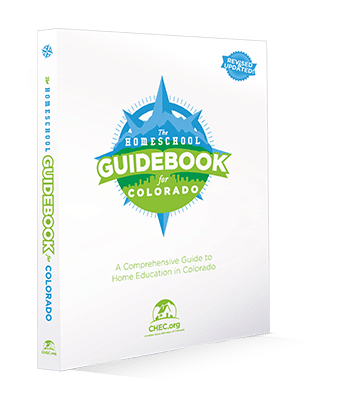Homeschooling High School Resources
Wherever you’re at in your homeschool journey, the next step of homeschooling through high school seems daunting – and never more so than entering the high school years. That’s why we’ve compiled these resources to help you step into the next season with confidence.
High School & Beyond Seminars
This one-day seminar, is viewable on-demand and offered in person a few times each year. The high school & beyond will give you hands-on knowledge about record-keeping, college prep, and other high school opportunities.
Rocky Mountain Homeschool Conference
The Rocky Mountain Homeschool Conference is a fun event for the entire family, held annually in June. You’ll find specific workshops geared to equip you to homeschool high school confidently.
HSLDA Homeschool Thru High School
The Home School Legal Defense Association’s website is full of practical tips, lists, and encouragement for parents homeschooling their students in the high school years. View their valuable homeschool information concerning high school and beyond here.
High School Requirements
Colorado does not have homeschool graduation requirements. Because you are overseeing your child’s education, you set the requirements. Once your student has met your set requirements, you graduate them. This means you sign the diploma – but don’t panic! It’s no different than a private school issuing and signing a diploma. We recommend that you determine the graduation requirements for your child based on your student’s post-high school plans.
- College? Research colleges they’re interested in and plan your high school curriculum around what it takes to get admitted to that college. Keep in mind that colleges typically put more weight on ACT/SAT scores than homeschool transcripts, so make sure to study adequately for these tests.
- Not college? If they do not plan to go to college, you can set your own requirements. Help them use their high school years as a time to pursue their passions, develop entrepreneurial or relational skills, and discover a life-long love of learning.
- College + NCAA? View more information on the NCAA requirements.
The HSLDA Homeschooling through High School brochure has great information on pages 4-6 regarding setting high school subject requirements. For more information on college admission, college entry testing and test preparation, and high school requirements, see the High School chapter of CHEC Guidebook.
High School Planning Tips
Although there are no requirements for high school graduation, here are a few things to keep in mind as you are creating a high school plan:
Where is your student headed?
- College-bound: If your student is planning to attend college, you’ll want to make sure he has the necessary credits to be accepted in the particular schools he may be interested in attending. (For example, STEM schools require a lot more math credits than a liberal arts college). We would recommend research any potential colleges for their requirements. For a general list of what colleges require, check out the HSLDA brochure “A Guide for Homeschooling through High School.” Also, check out the high school chapter in the Colorado Guidebook.
- Not college bound? While you’ll still want to make sure your student has the basic credits in the required subjects (see this law breakout for more details), you do have the freedom to tailor his or her education to gifts and interests. Consider looking for hands-on internships and apprenticeships to learn trade skills.
What kind of records should you keep?
- We highly recommend keeping detailed records throughout the high school years to make creating a transcript easier. Make sure you keep grades for each subject credit as well as lists of books read and projects completed. (You may want to keep a portfolio of work samples for the high school years).
Community service/Club leadership
- Whether your student is planning to apply for college scholarships or a job, community service hours and club leadership will go a long way to help him or her out. Many college scholarships are based exclusively on this, and leadership skills are looked highly upon by employers. Consider leading a 4H or Scouts troop, starting a STEM or book club, or volunteering at a local nonprofit.
- Look for opportunities for your students to build a good work ethic through life skills, chores, part-time work for others in the community, or entrepreneurial endeavors. This can possibly be listed on a transcript (depending on what a potential college is looking for) as work study or business practical.
College & Distance Learning
Dual enrollment
Many high school students pursue higher education for dual credit: completing college-level courses in high school to receive both high school and college credit.
- Calvary University offers an Early College option so high school students can study online.
- Unbound (formerly known as CollegePlus) Provides students with tools, a faith-based community, and experiences they need to lead extraordinary lives for Christ — all while earning an accredited bachelor’s degree.
- College for All USA offers distance learning through affordable and flexible credit.
- The Master’s University offers discounted rates for dual-enrolled students.
- Liberty University Online offered discounted classes for dual-enrolled students as well as a broad variety of online degree options.
College on a budget
Distance-ed and homeschool-friendly colleges
- Accredited Online Colleges
- 2017 List of Accredited Online Christian Colleges (note that their definition of a Christian college is very broad).
- Calvary University (distance education)
Traditional college admission tips
- Check with prospective colleges for high school requirements.
- Outline a realistic plan to meet these requirements over the next four years.
- Consider instituting a grading system in ninth grade if you have been unaccustomed to grading in the lower levels.
- Adopt a transcript form that you will use and keep up-to-date throughout the high school years (see transcript section below).
High School Graduation & Diplomas
Celebrate this occasion with your student! Find out more about the CHEC Graduation Ceremony here. You can also purchase your own graduation supplies at the links below:
- Order a Diploma from CHEC
- Order other products from the HSLDA Graduation Store
Testing (In Preparation for College)
If your student is preparing for college, make sure they’re also preparing for the correct college entrance tests. Learn more at these links:
- Explanation of tests at HSLDA.org
- Article: SAT vs. ACT
- ACT information and registration
- SAT (and PSAT) information and registration
- Khan Academy: free official SAT prep
- John Baylor Test Prep
- Smart Scholar SAT resource guide
- Classic Learning Test (CLT) (This is a new test, so make sure your preferred college accepts results from the CLT before choosing this option)
If you take the SAT or ACT, be sure to use the code “Homeschool” in the school section. (This applies to both those who submit a Notice of Intent and those who enroll in the CHEC Independent School). When you register, use these codes:
- SAT: 970000
- ACT: 969-999 (this is specific to Colorado)
- PSAT: On the Answer Sheet, be sure to put your personal address, then check the box that says “I’m a homeschool student.”
Military
Learn more about homeschoolers and the military on the HSLDA website. This article also has some helpful advice about entering the military as a homeschool student. An official career vocational assessment required for the military can be found here.
Transcripts
A transcript is a record of a student’s high school work. A transcript must include:
- personal information such as full name, birthdate, grade level
- grade in course
- GPA and cumulative GPA for each year
- specific courses taken for each year
- credits per course
- total credits
- signature/date
- Some higher education and workforce training programs require the student’s social security number to be listed.
Learn more about recommended high school courses and transcripts at HSLDA.org or in the High School chapter of the CHEC Guidebook.
- HSLDA Fast Transcript service and Transcript Review (for members)
- Thehomeschoolmom.com: helpful how-to’s and free template.
- Letshomeschoolhighschool.com: free template
- Donnayoung.org: free template
- The CHEC Independent School: free transcript templates for members
For sample transcripts, instructions, GPA calculation, and more, read the High School chapter of the CHEC Guidebook.
- Resume Writing Guide: Step-by-step explanations and links to further information for creating a resume.
Career Direction
Career direction options include taking an assessment on your own or taking the assessment and working with a consultant. An official career vocational assessment required for the military can be found here.




